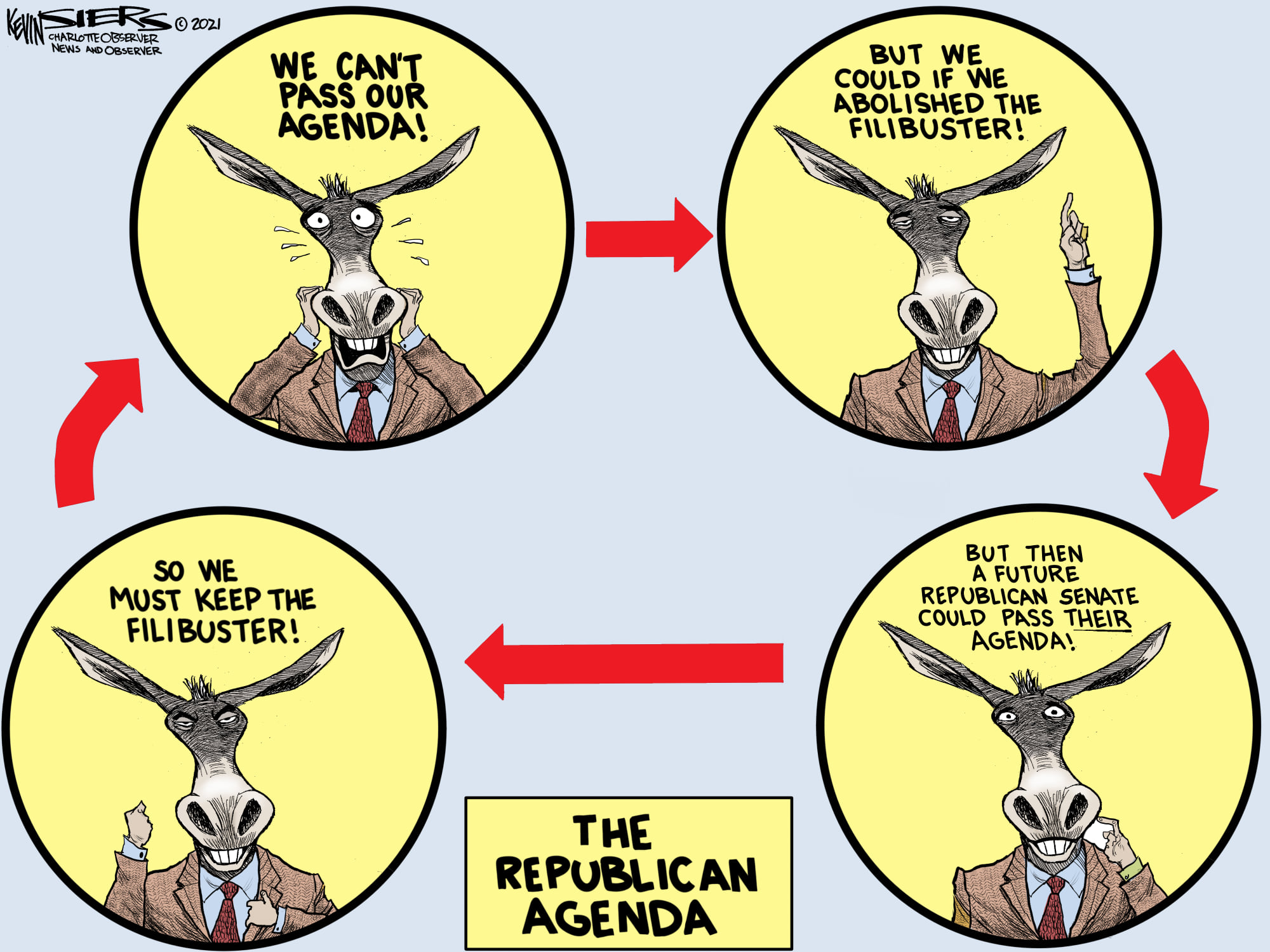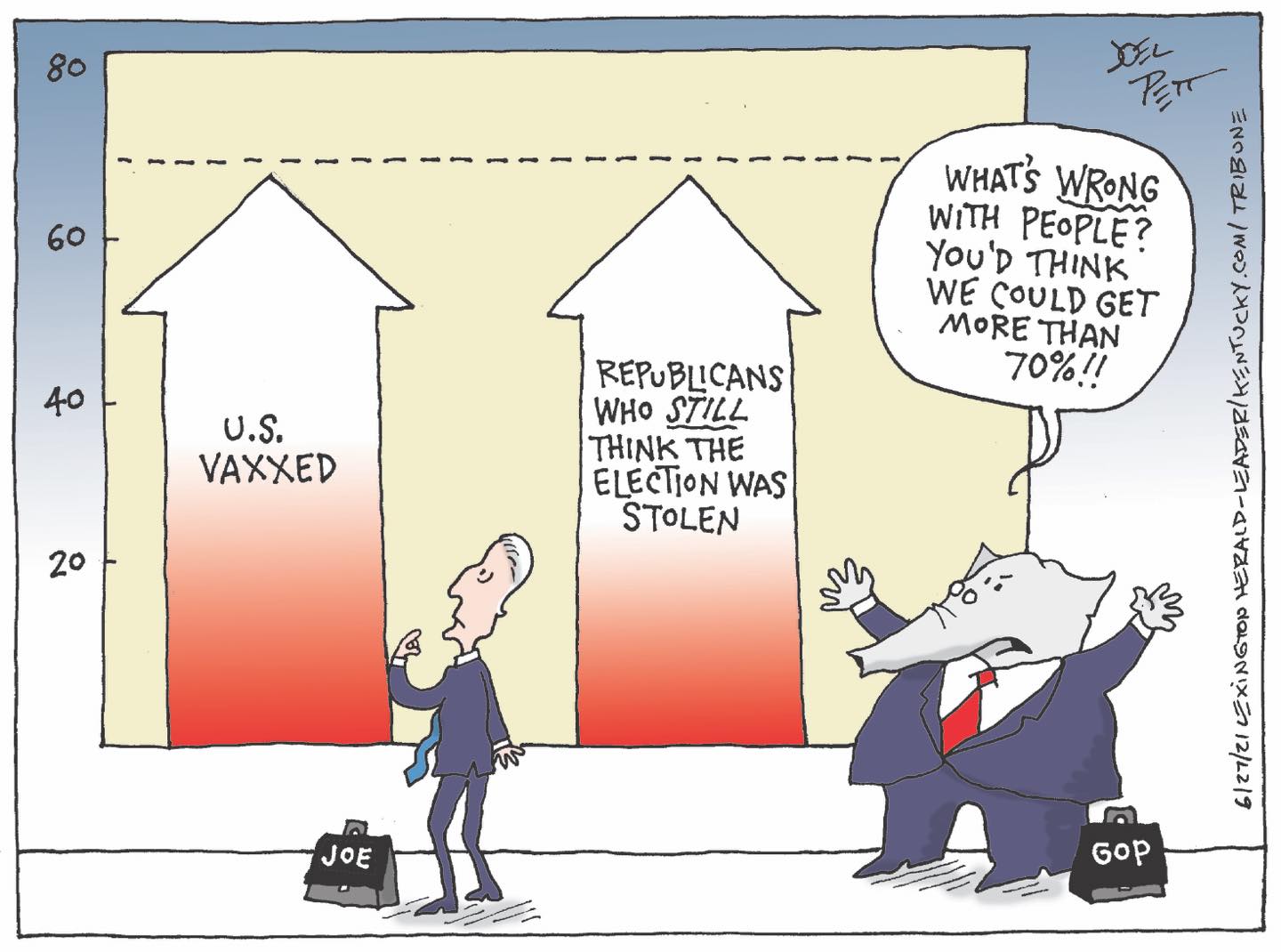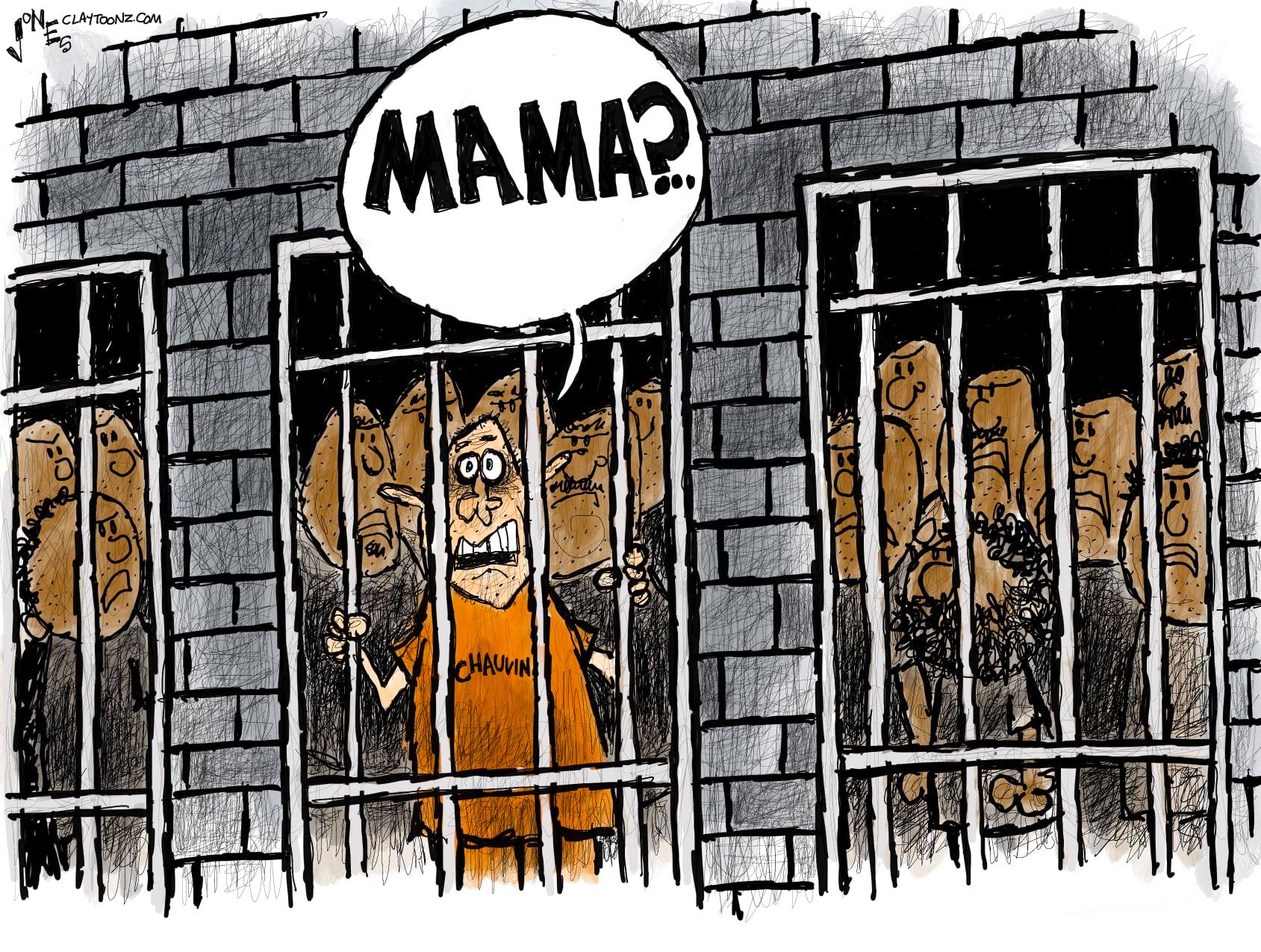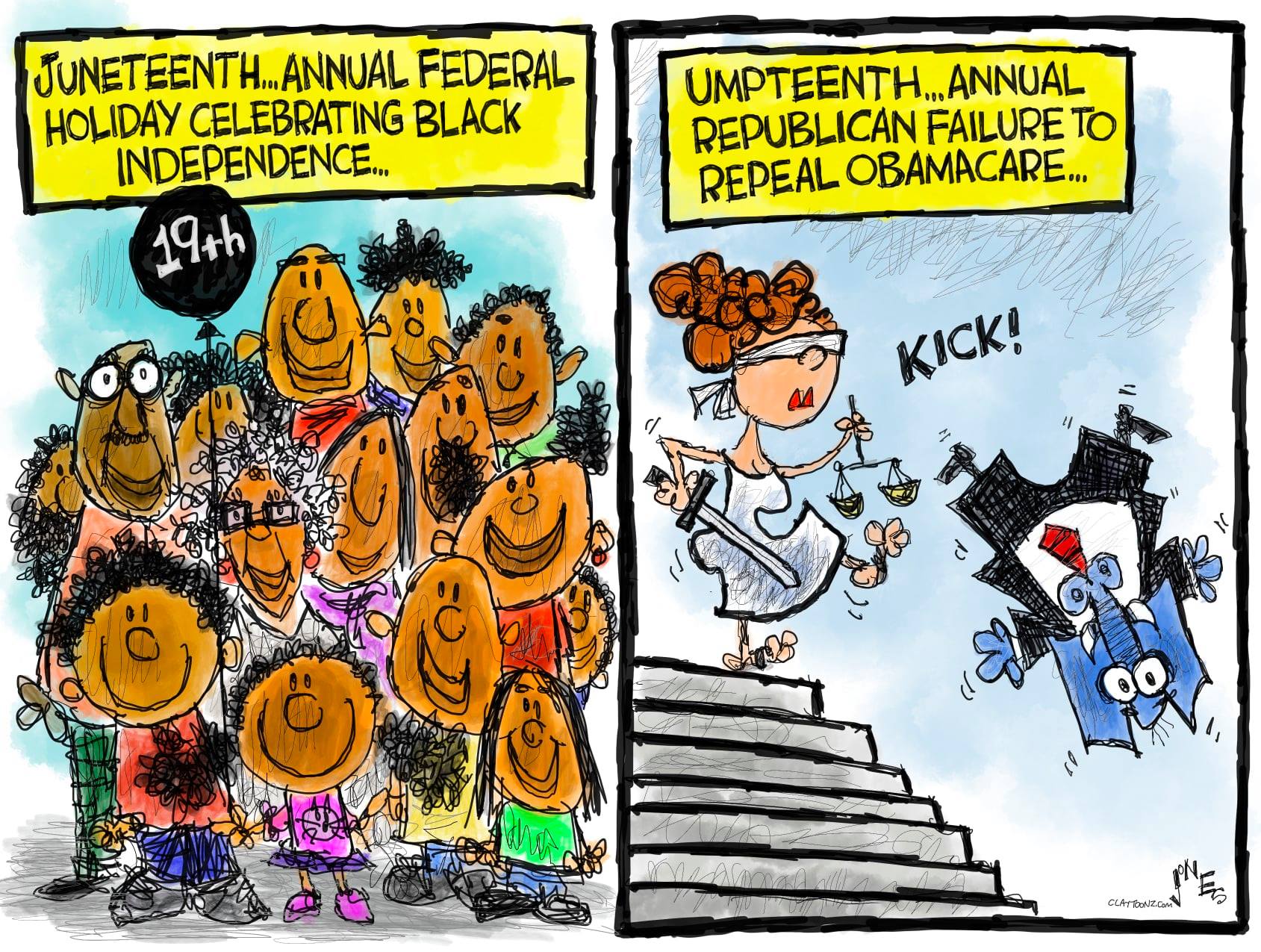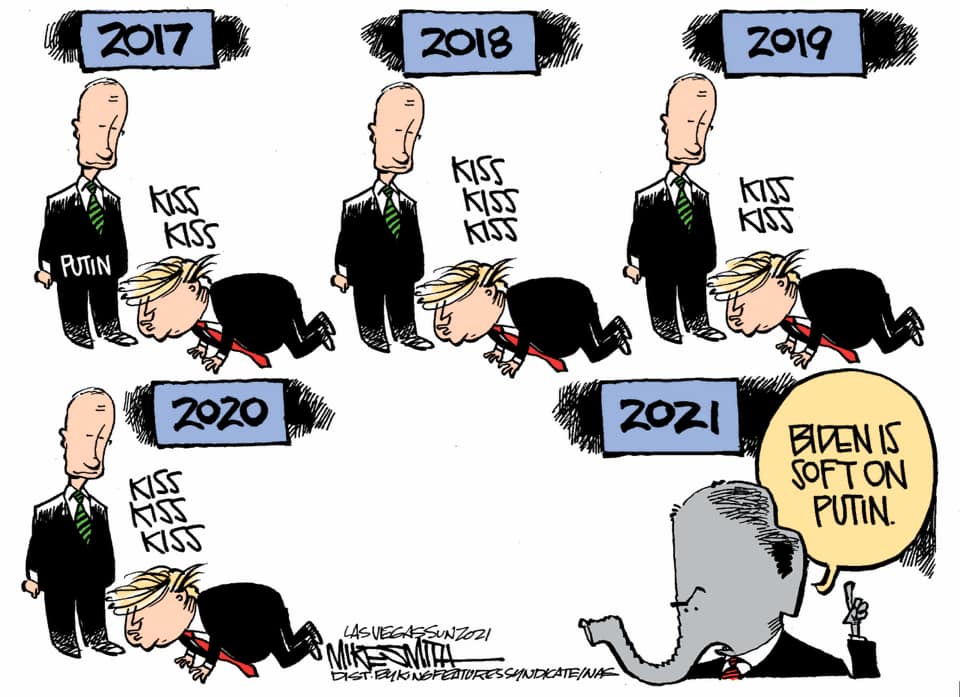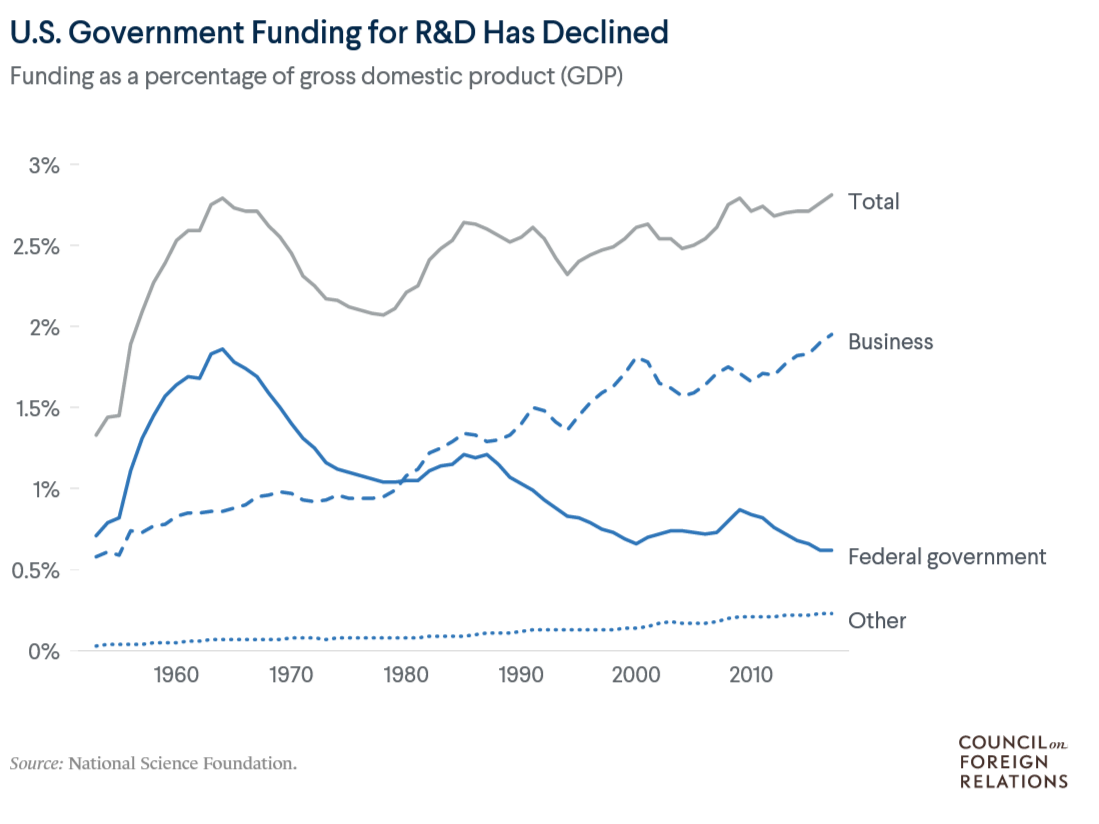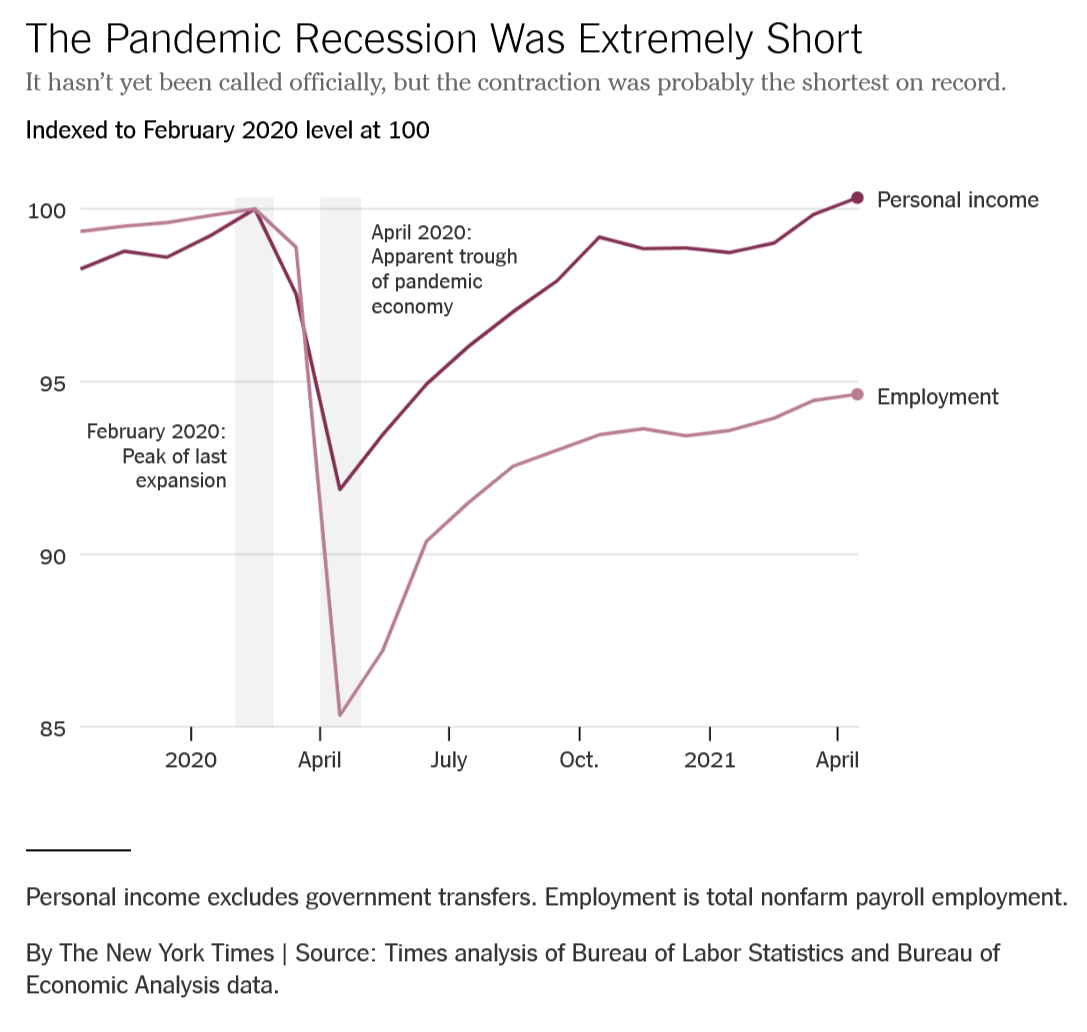The Daily Escape:

Sunset, Thumpertown Beach, Eastham, Cape Cod MA – June 2021 iPhone photo by Wrongo
Today’s new Republican talking point is that the main reason violent crime is on the rise is that Democrats have “stigmatized one of the most honorable professions in America.”
How is it that the Party that wants to drown the government in a bathtub, that worships guns, and believes Americans must be armed against their government, holds on to its brand as the Party of “law and order”?
Murder is up all over America. The GOP wants to blame “defund the police”, the Black Lives Matter movement, and whatever Antifa is. Toss in the horror of Critical Race Theory, and in a way, they’re trying out another “Willie Horton” political argument on the rest of us. (hat tip to WaMo)
For those who don’t remember, GHW Bush exploited Willie Horton’s 1986 rape of a woman in Maryland that occurred while Horton skipped out of his furlough. He raped and stabbed her.
Bush used this to trigger voters’ conscious and unconscious racial biases about African American men in his 1988 presidential election run against Michael Dukakis, who was governor of Massachusetts, the state Horton fled after his early release.
No one really knows why murders are up, but surely, it’s a multi-factor problem. Last week, Derek Chauvin was sentenced to 22.5 years for murdering George Floyd. That’s about 10 years above the usual sentence recommended by law. But Chauvin’s sentencing doesn’t begin to solve America’s problem with policing.
And it won’t do anything for America’s murder rate.
A few things are certain. The NYT reported on a survey of almost 200 police departments nationwide that indicated retirements were up 45% while resignations rose by 18% in the last year, compared with the previous 12 months. From the NYT:
“New York City saw 2,600 officers retire in 2020 compared with 1,509 the year before. Resignations in Seattle increased to 123 from 34 and retirements to 96 from 43. Minneapolis, which had 912 uniformed officers in May 2019, is now down to 699.”
This is happening while most cities are contending with a rise in shootings and homicides. It raises in Wrongo’s mind a certain aroma of White fragility among police specifically, and Republicans generally.
The idea that Republicans are now wringing their hands and cops are quitting the job because activists carry signs that say defund the police, seems a disproportionate response to what the police continue to do to minorities.
These topics are far too complicated for one column, but let’s touch on a few high-level concerns: Killings are a direct result of the prevalence of guns in our country. We know that in most countries, police are under significantly less stress because they are don’t fear that every encounter will be with someone with a gun. From the NYT:
“…officers said they were asked to handle too much; they were constantly thrown at tangled societal problems like mental health breakdowns or drug overdoses, they said, for which they were ill-equipped — then blamed when things went wrong.”
This leads to the deliberately misunderstood (by Republicans) “defund” concept, which wants to redeploy some public spending on better services and better outcomes for citizens. It does that by providing additional resources that remove cops from situations that they are neither well-trained for, nor well-suited to address.
Second, law enforcement culture must change. The militarization of America’s police forces must be reversed. The power of police unions to influence police department culture must end.
Third, Democrats are running a big risk by not also focusing on the public safety issues of minority voters. Too many five-year-olds have been shot on their front stoops this year, and their grandmas who vote know that.
Axios reports that the Democratic messaging group Future Majority has identified areas where Republicans hold a political advantage. Republicans outperformed Democrats on jobs and the economy, gun rights, and “keeping you and your family safe.” In addition, of the issues polled, “defunding the police,” “open borders” and “reparations for slavery” were by far the biggest turnoffs for independents and voters in general.
The question for Democrats is how to balance changing police culture while seeing that people are protected? There’s a growing cop shortage, and Democrats are scrambling to develop a more complete response on crime.
So far this year, 21,099 Americans have been killed by a gun, including 11,550 suicides. Another 18,596 people have been wounded. Of that number, 720 children and teens under age 18 have been killed by guns, and another 1,852 have been wounded. And there have been 298 mass shootings resulting in 334 deaths and 1,244 injuries.
It’s time for action Democrats! Stop letting the GOP define your policies for you. To help you wake up, listen to Bananarama’s “Cruel Summer”. The video is a time capsule of 1980s NYC. If you remember, in 1980, people said: The future will be awesome! In 2021 Republicans are saying: I want to go back to the 80s:


